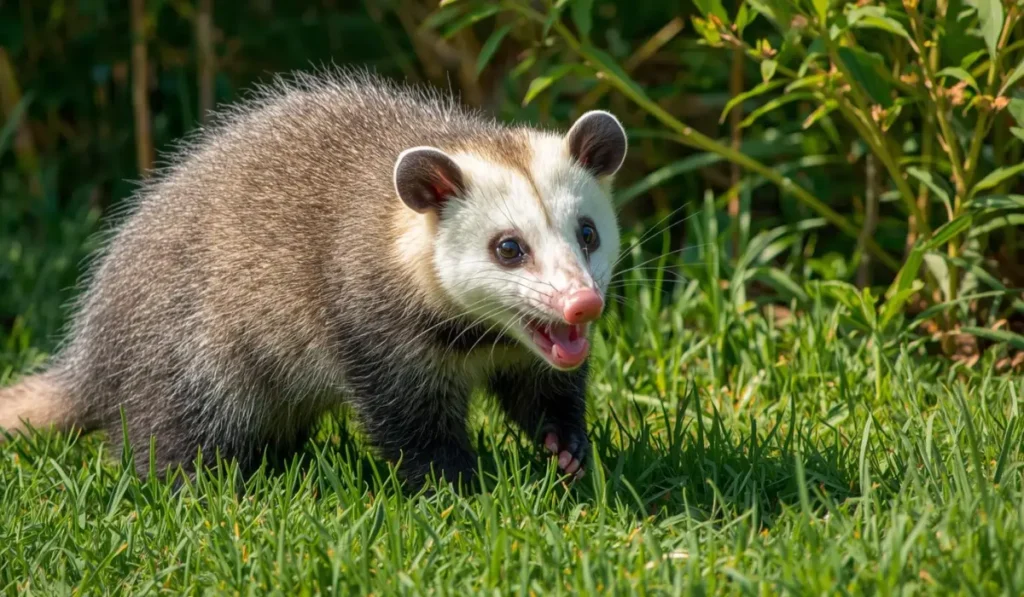
When most people think of possums, they imagine noisy little visitors clambering across rooftops at night. But the truth is, these animals are much more than a suburban nuisance. Their presence tells us a lot about the health of our environment, and understanding the possums role in ecosystem is key to learning how to live alongside them. This article dives into their importance, threats they face, and how we can protect and manage them without causing harm.
What Exactly Are Possums?
Australia is home to around 23 different possum species, each with their own quirks. Some are tiny gliders soaring through forests, while others like the brushtail are well adapted to city life. The importance of possums becomes clear when you look at this diversity, because each species plays a slightly different role in keeping our natural systems balanced.
- Ringtail possums build leafy dreys high in trees, shaping habitat for other animals.
- Brushtails eat a mix of leaves, fruits, and insects, which influences what grows and what doesn’t.
- Gliders act as pollinators when they feed on nectar, quietly helping forests regenerate.
Why Possums Matter in Australia’s Ecosystem?
We often overlook why possums matter Australia, especially when they’re scratching in our roof cavities. But ecologists know their activities help forests, gardens, and even farms in ways we rarely notice.
- Seed dispersal and pollination: Possums move seeds across wide areas and help fertilise flowers by feeding on nectar.
- Natural pest control: Some species consume insects and snails, balancing numbers that might otherwise damage vegetation.
- Habitat signals: When possums thrive, it’s usually a sign the environment still has enough old trees and hollows.
- Nutrient recycling: By feeding on fallen fruits and scraps, they return nutrients to the soil.
These everyday actions are what give the possums role in ecosystem its weight. Without them, the flow of energy through food webs and plant communities would shift in ways we probably wouldn’t like.
Protected Possum Species in Australia
Not all possums are common, and many are now struggling for survival. Laws safeguard them, and several are officially listed as threatened. The story of protected possum species in Australia highlights how fragile some populations have become.
- Leadbeater’s Possum: Critically endangered, surviving only in patches of Victoria’s mountain ash forests.
- Greater Glider: Recently listed as endangered due to habitat loss and climate impacts.
- Mountain Pygmy Possum: Found only in alpine zones, threatened by warming climates reducing snow cover.
Each of these species shows another layer of the importance of possums, not only to nature but also to cultural identity and conservation policy in this country. Protecting them often means protecting entire ecosystems.
Threats Possums Face
Even though they’ve lived here for millions of years, modern changes are putting pressure on possums. Knowing these threats explains why possums matter Australia, because every factor that affects them affects our environment too.
- Habitat destruction from land clearing and development.
- Road deaths and attacks from domestic cats and dogs.
- Intense bushfires wiping out food and shelter.
- Climate change altering rainfall, heat, and vegetation cycles.
Without serious conservation efforts, more protected possum species in Australia may slip closer to extinction. And once they’re gone, restoring those ecological connections won’t be easy.
Possums as Indicators of Environmental Health
Think of possums as little ecological messengers. When you see them around, it usually means the local area still has enough food and hollow-bearing trees to sustain them. In contrast, a decline can signal habitat stress, fragmentation, or pollution.
In this way, the importance of possums stretches beyond just their daily habits. They act as a living reflection of biodiversity health across forests, parks, and even backyards.
How Humans Can Coexist with Possums?
Coexisting doesn’t mean letting them run wild in the ceiling. It means balancing human comfort with wildlife survival. This is where expert possum removal without harm becomes essential.
- Identify and seal entry points once possums have left.
- Provide alternative shelters like nesting boxes so they’re not left homeless.
- Call licensed wildlife professionals rather than taking matters into your own hands.
Handled properly, expert possum removal without harm respects both the animals’ legal protection and your peace of mind at home.
Broader Conservation Actions That Help
Beyond our own houses, bigger conservation steps are needed to support possums long-term. These aren’t just scientific efforts, they’re community-driven too.
- Protecting old-growth trees and encouraging hollow-replacement projects.
- Restoring green corridors between fragmented habitats.
- Supporting Indigenous knowledge, which has long recognised why possums matter Australia and their cultural roles.
- Citizen science projects where people report sightings, adding valuable data for researchers.
Case Studies That Prove Change Works
In Victoria, community groups helped plant thousands of trees linking fragmented forest, directly boosting glider and possum numbers. On Kangaroo Island, brushtail possums were successfully reintroduced after bushfires devastated local populations.
These stories show the importance of possums in practice. Once their habitat improves, ecosystems bounce back too, from pollination to insect control.
Conclusion
Possums aren’t just night-time climbers on your roof, they’re an essential part of Australia’s natural balance. The possums role in ecosystem includes pollinating plants, spreading seeds, and quietly supporting the health of our landscapes. When they end up in our homes, it’s important to find a way to manage the situation without causing them harm. That’s where Daily Possum Removal comes in. We focus on safe, humane practices that protect your property while respecting the animals. If you need help keeping possums out of your home, give us a call on 0489908469 and let our experienced team take care of it the right way.

